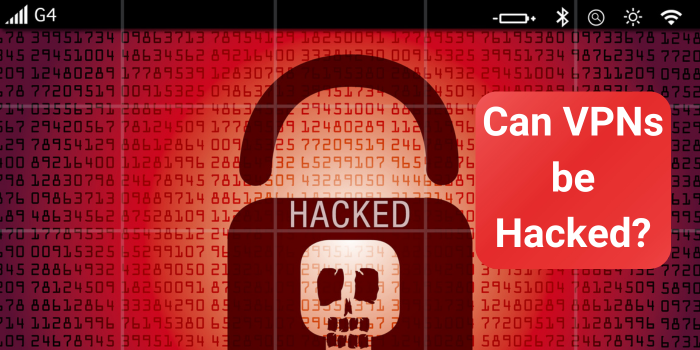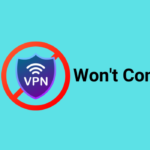In an increasingly digital world, VPNs (Virtual Private Networks) have become essential tools for ensuring online privacy and security. They allow users to browse the internet anonymously, access geo-restricted content, and protect sensitive information from prying eyes. However, a common question arises: can VPNs be hacked? The answer is nuanced, and this blog will delve into the potential vulnerabilities of VPNs, the risks involved, and how users can protect themselves.
How VPNs Work?
To understand the potential vulnerabilities of VPNs, it’s important to first understand how they work. An encrypted, secure tunnel is built by a VPN between your device and the internet. When you connect to a VPN, your internet traffic is routed through a VPN server, which masks your IP address and encrypts your data. This process ensures that your online activities are hidden from your Internet Service Provider (ISP), government agencies, and hackers.
Key Components of VPN Security:
- Encryption: VPNs use encryption protocols to secure data. This encryption makes it difficult for anyone to intercept and read your data.
- Secure Servers: VPN providers operate servers in various locations around the world. The security of these servers is crucial for maintaining the integrity of the VPN service.
- No-Logs Policies: Many VPN providers promise not to log users’ activity, ensuring that even if data were intercepted, there would be no records to examine.
Potential Vulnerabilities in VPNs
While VPNs provide a significant layer of security, they are not completely immune to threats. Here are some potential vulnerabilities:
Weak Encryption Protocols
VPNs rely on encryption protocols to secure data. However, not all encryption protocols offer the same level of security. Older protocols, such as PPTP (Point-to-Point Tunneling Protocol), are known to have vulnerabilities that can be exploited by hackers. More secure protocols include:
- OpenVPN: Highly regarded for its strong security and flexibility.
- Wireguard: A more recent system called WireGuard is commended for its effectiveness and ease of use.
- IKEv2/IPSec: Known for its stability and security, especially on mobile devices.
Using an outdated or weak encryption protocol can leave a VPN connection vulnerable to attacks, such as brute force attacks or traffic decryption.
Compromised VPN Servers
The security of VPN servers is paramount. If a VPN provider’s servers are compromised, hackers could potentially access user data or monitor traffic. This risk highlights the importance of choosing a VPN provider that invests in secure infrastructure, regularly updates its systems, and employs robust security measures, such as:
- Regular Security Audits: Independent audits can verify the security claims made by VPN providers.
- RAM-Only Servers: Some providers use RAM-only servers, which do not store data permanently and erase all information upon reboot, enhancing security.
DNS Leaks
DNS (Domain Name System) leaks occur when your device’s DNS requests bypass the VPN tunnel, exposing your browsing activity to your ISP or other entities. A DNS leak defeats the purpose of using a VPN for privacy. A reliable VPN should offer DNS leak protection, ensuring that all DNS requests are routed through the VPN server and encrypted.
Logging Policies
The logging policies of VPN providers are crucial for user privacy. Some VPNs keep logs of user activity, which can be a significant vulnerability if this data is accessed by unauthorized parties or provided to authorities. When choosing a VPN, look for providers that have:
- Strict No-Logs Policies: These providers do not track or store any information about your online activities.
- Transparent Privacy Policies: Clear and transparent policies that explain what data is collected (if any) and how it is used.
Phishing and Social Engineering
Even the most secure VPN cannot protect against phishing attacks or social engineering tactics. If a user is tricked into revealing their VPN credentials or installing malware, their data can be compromised. These attacks can occur through:
- Phishing Emails: Malicious emails designed to look like they come from your VPN provider, asking for login information or prompting you to download harmful software.
- Fake Websites: Clone websites that mimic legitimate VPN providers, aiming to steal your credentials.
How to Protect Your VPN and Data?
While VPNs are powerful tools for protecting privacy and security, users must take proactive steps to maximize their effectiveness:
Choose a Reputable VPN Provider
The amount of security provided by VPNs varies. Some key considerations when choosing a VPN provider include:
- Reputation and Reviews: Look for strong reputations and positive reviews from trusted sources VPN providers like ExpressVPN.
- Encryption Strength: VPNs that use strong encryption algorithms like AES-256.
- Server Security: VPN provider with a focus on server security and regular audits.
- No-Logs Policy: VPN that strictly adheres to a no-logs policy, ensuring your data remains private.
- Client-Side Security:VPN client is well-maintained and regularly updated with security patches.
- Jurisdiction: Consider the legal jurisdiction under which the VPN operates, as it can impact data privacy. For example, VPNs based in countries with strong privacy laws may offer better protection.
Use Strong Encryption
Ensure that your VPN uses modern, secure encryption protocols. Avoid using outdated protocols like PPTP, and opt for more secure options such as OpenVPN or WireGuard.
Regularly Update Your Software
Keeping your VPN software and devices up-to-date is crucial for security. Updates often include patches for known vulnerabilities, so regular updates help protect against potential exploits.
Enable Kill Switches
A kill switch is a feature that disconnects your internet if the VPN connection drops unexpectedly. This stops unencrypted data and your actual IP address from being seen. Make sure this feature is enabled and that it is offered by your VPN provider.
Beware of Phishing and Social Engineering
Always be cautious of unsolicited emails or messages asking for your VPN credentials or urging you to install software. Prior to acting, confirm the legitimacy of any correspondence. Use common sense and skepticism to avoid falling victim to phishing and social engineering attacks.
Use Two-Factor Authentication (2FA)
If your VPN provider offers two-factor authentication (2FA), enable it. 2FA adds an additional layer of security by requiring a second form of verification (such as a code sent to your phone) in addition to your password.
Monitor for Data Breaches
Regularly check if your email addresses or other sensitive information have been involved in data breaches. You can receive alerts from tools like “Have I Been Pwned” if your data has been compromised.
What is the most secure VPN?
There is no definitive “most secure VPN” as security can vary based on factors like the provider’s policies, technology, and infrastructure. However, reputable providers like ExpressVPN, Surfshark, and ProtonVPN are often considered among the most secure options.
Can you be hacked through VPN?
While VPNs are designed to enhance your online privacy and security, they are not infallible. It’s possible to be hacked even when using a VPN. If the VPN service itself is compromised or if you make mistakes like using weak passwords or clicking on malicious links, your security could be at risk.
Which VPNs have been hacked?
Several VPN services have been hacked in the past. This highlights the importance of choosing a reputable provider with a strong security track record. Look for VPNs that use advanced encryption protocols, have a no-logs policy, and undergo regular security audits.
Is a VPN really secure?
A VPN can be a highly secure tool, but it’s essential to use it correctly. Choose a trusted provider, use strong passwords, and be cautious of phishing attempts. Remember that no security solution is completely foolproof.
Can someone steal my data through VPN?
It’s generally difficult for someone to steal your data through a VPN, especially if you’re using a reputable service with strong security measures. However, if the VPN service is compromised or if you make mistakes, your data could be at risk. Always be cautious of phishing attempts and avoid sharing sensitive information on public Wi-Fi networks, even when using a VPN.
Conclusion
VPNs are valuable tools for enhancing online privacy and security, but they are not foolproof. Understanding the potential vulnerabilities and taking proactive measures can help you minimize the risks associated with using a VPN. Always choose a reputable provider, use strong encryption protocols, and stay vigilant against phishing and social engineering attacks. By doing so, you can significantly reduce the chances of your VPN being hacked and enjoy a safer, more private online experience.
While no technology can offer absolute security, being informed and proactive in your approach to online privacy can make a substantial difference. Stay safe, stay informed, and take control of your digital security with a well-chosen and properly used VPN.



